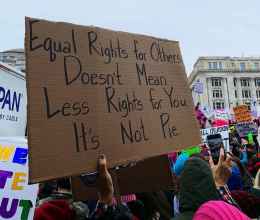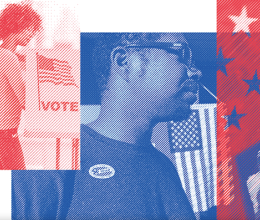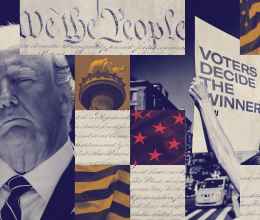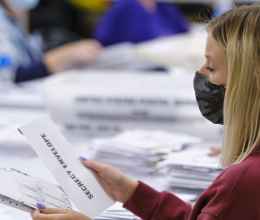Ruthelle Frank is a resident of Brokaw, Wisconsin, where she has served on the Village Board since 1996. She has voted in every election since 1948.
Ruthelle was born at her home in Brokaw in 1927. She has no accepted form of photo ID or certified copy of her birth certificate. And the record on file with the state, which she would need to get a photo ID, has an incorrect spelling of her maiden name: Wedepohl. The process to fix it would cost $200 or more.
Under a 2011 voter ID law passed in Wisconsin, Ruthelle essentially could not afford to vote.
Now Gov. LePage wants to pass a similar law in Maine. He says the Maine election system – the same system that elected him governor TWICE – is rigged and subject to fraud. He alludes to dead people and non-citizens voting.
The governor could not be more wrong. People showing up at the polling place pretending to be someone else so they can vote would be an incredibly inefficient and ineffective way to change the outcome of an election – and it just doesn’t happen.
Loyola professor and elections expert Justin Levitt tracked all specific, credible allegations that someone may have pretended to be someone else at the polls, anywhere in the country, from 2000 to 2014. He found 31 incidents. In 14 years. Out of about one billion ballots cast.
He found 31 incidents. In 14 years. Out of about one billion ballots cast.
What's more, Maine law already requires election officials to check voter rolls against death certificates and other DHHS records. Either the governor doesn't know that, or he is implying that local election officials are not capable of doing their jobs.
Worse still, courts have found over and over again that voter ID laws place a greater burden on poor people and people of color – communities that already face greater barriers to participating in democracy,
Given that voter ID laws supposedly target a type of crime that isn’t actually being committed, and disenfranchise a whole lot of qualified poor and minority voters in the process, there can be no justification for them. That's why the Maine legislature has rejected repeated attempts to put such discriminatory laws in place in Maine.
Gov. LePage should be proud that Maine has an election system that works, with some of the highest voter turnout in the nation. He should encourage more qualified people to participate in the process, not try to make it harder for them to do so.
Check our our voting rights guide here, and more resources from the ACLU here.






